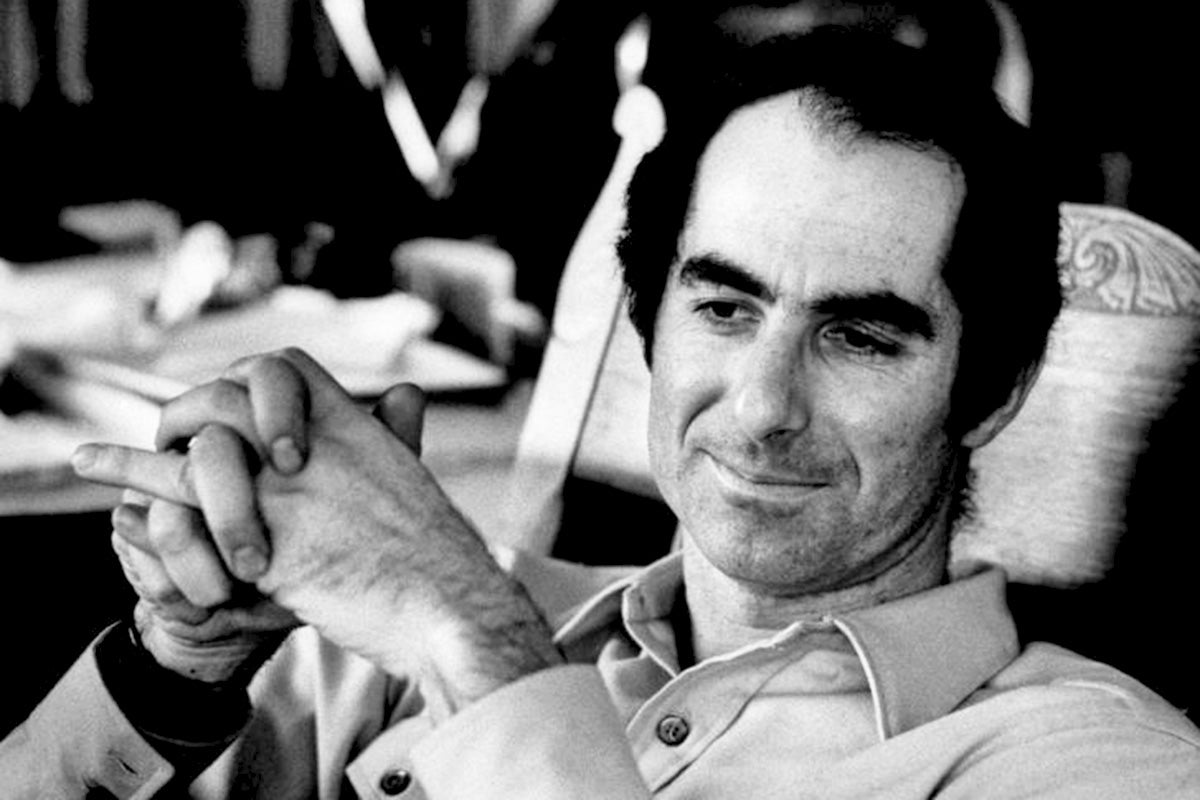Philip Roth was a true literary giant, but the idea of the 'Great American Novelist' should die with him
Only a ‘great novelist’ of the old mould could possibly claim to know ‘everything’ about blackness simply because he invented a black character

Your support helps us to tell the story
From reproductive rights to climate change to Big Tech, The Independent is on the ground when the story is developing. Whether it's investigating the financials of Elon Musk's pro-Trump PAC or producing our latest documentary, 'The A Word', which shines a light on the American women fighting for reproductive rights, we know how important it is to parse out the facts from the messaging.
At such a critical moment in US history, we need reporters on the ground. Your donation allows us to keep sending journalists to speak to both sides of the story.
The Independent is trusted by Americans across the entire political spectrum. And unlike many other quality news outlets, we choose not to lock Americans out of our reporting and analysis with paywalls. We believe quality journalism should be available to everyone, paid for by those who can afford it.
Your support makes all the difference.“Dear Wikipedia, I am Philip Roth.”
So begins an open letter published in The New Yorker in 2012, addressed to the world’s favourite encyclopaedia, from the world’s favourite angry male writer.
Roth, who passed away on Tuesday at the age of 85, has been hailed as the Great American Novelist ever since the publication of his 1969 book Portnoy’s Complaint, which chronicled a young Jewish boy’s addiction to masturbation.
(Roth: the “Seminal” American Novelist?)
He is the rare type of person whose death only asserts their immortality. The more you try to erase him, the more that he appears. Roth was a true literary giant and will probably be read and remembered for as long as there is a human race, but his passing serves to remind us that the Great American Novelist can no longer exist in contemporary fiction. This is a good thing. The age of the Great White Male – the Swinging Moby Dick – is at an end.
Dear Independent Voices, I am “A”: a white, cis-gendered male writer who has studied and loved Philip Roth.
But I recognise the importance of not emulating him: that such writers are a breed that should be allowed to pass away. The White Male Gaze something that needs to be dissolved and deconstructed.
Roth complained to Wikipedia because the entry about his novel The Human Stain contained “a serious misstatement”, only to be told that, “I, Roth, was not a credible source”.
Wikipedia stuck to their collaborative model, asking for secondary sources. Roth published an open response in The New Yorker. The author’s unhappiness seemed to have less to do with the misstatement, and more to do with the “I, Roth”. The letter has at its core the fear of Libertarian Man: that maybe he alone is not so important after all.
Maybe it’s not hard to see why Roth, who became famous for his confessional descriptions of a young boy’s lone masturbation, was frustrated by the multiple-perspective orgy of Wikipedia.
For some, crowd-edited content seems to value collectivism over “fact”. But absolute truth is absolutely inflected by lived experience; by community ethics. The same should be said of whatever “truth” we hope to attain through reading and writing fiction.
“What does it matter who is speaking?” asked Michel Foucault in 1967. It’s becoming apparent in 2018 that it matters plenty.
The protagonist of The Human Stain, Coleman Silk, is a black man who passes as white. The Wikipedia entry claimed the character was influenced by the life of Anatole Broyard. Roth’s response was: “I had no idea what it was like for Broyard to flee from his blackness because I knew nothing about Anatole Broyard’s blackness… But I knew everything about Coleman Silk because I had invented him from scratch.”
Only a “great novelist” of the old mould could possibly claim to know “everything” about blackness simply because he invented a black character. The Human Stain is in many ways a masterpiece, but there’s simply no ethical or aesthetic value in a white man make-believing that he might know everything (or, indeed, anything) about black experience.
At a 2014 event in Foyles bookshop, I saw the white, New York-based writer Ben Lerner speak about his novel 10:04, which is also in many ways a masterpiece. Yes, it’s yet another first-person book about a white guy in New York. But, asked Lerner rhetorically, “Would it have been more ethical to imagine that I was a young girl living in Africa?”
Instead, Ben Lerner writes a book with a white male protagonist who is basically trying to “get out of the way” and provide a frame for the valuable collective experiences of those around him. For example, we only find out the name of the protagonist when he is deleting an email that he wrote to himself, pretending to be a famous author: “Dear Ben, I deleted.” This is a kind of antidote to “Dear Wikipedia, I am Philip Roth”, a model for white male authors to follow in future.
“Dear Independent Voices, I am Adam Heardman,” I backspaced from this piece, leaving the initial, “A”.
Writers of a particular privilege need to recognise their position and begin asserting their voice only along a continuum of multiple lived experiences, to readdress the “alpha”. Not out of some misplaced sense of selflessness, but simply because it’s the most interesting and valuable addition to the conversation from our particular standpoint.
Perhaps we need to erase to progress, like backspacing misspelled words to rediscover the correct suggestion on autocorrect. Let’s say a fond farewell to Philip Roth, but a firm good riddance to The Great (White) American Novelist.
Join our commenting forum
Join thought-provoking conversations, follow other Independent readers and see their replies
Comments